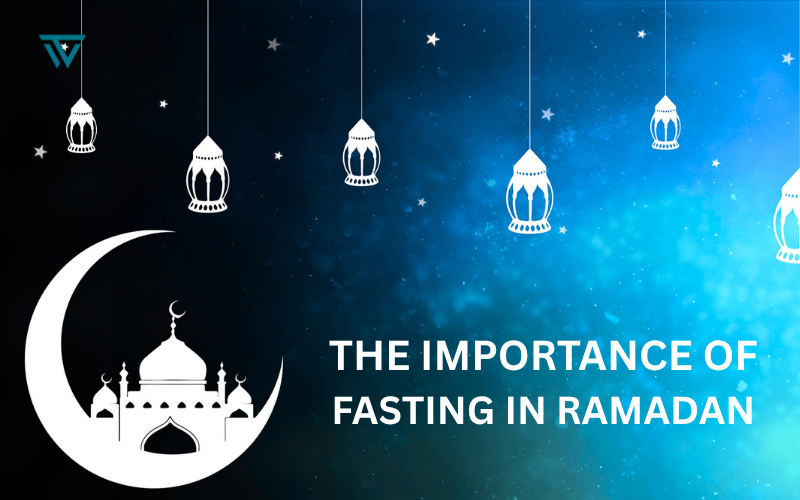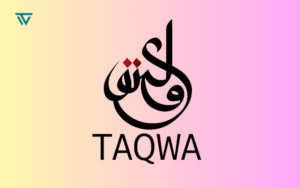Fasting in Islam: Purpose, Rules, and Rewards

The blessed month of Ramadan arrives each year as a profound spiritual season. It’s a unique gift from Allah Almighty to Muslims worldwide, offering a chance for deep spiritual cleansing and growth. Through sincere observance of fasting in islam, known as Siyam, a Muslim can achieve both physical and spiritual purification. This devotion opens the door to Paradise through a special gate, ‘Ar-Raiyan,’ reserved for those who fast. Ramadan also acts as a shield against Hellfire. The fast itself will intercede on the Day of Judgment for those who observe it with true faith (Iman) and hope for Allah’s reward (Ihtisab). Allah, in His boundless mercy, even chains the devils during this month, making our path to virtue easier.
Reflecting on the Heart of Fasting
However, we must ask ourselves a vital question, especially as Muslims Are we fully embracing these precious opportunities? Or do our long hours of abstaining from food and drink—from Suhoor (pre-dawn meal) to Iftar (breaking the fast)—become mere endurance tests of hunger and thirst? Does our fast transform us, or does it remain a ritual empty of its true spirit, far from the holistic essence of fasting in islam?
Allah SWT clearly states the purpose of fasting in the Quran:
يَا أَيُّهَا الَّذِينَ آمَنُوا كُتِبَ عَلَيْكُمُ الصِّيَامُ كَمَا كُتِبَ عَلَى الَّذِينَ مِن قَبْلِكُمْ لَعَلَّكُمْ تَتَّقُونَ
“O you who have believed, decreed upon you is fasting as it was decreed upon those before you that you may achieve righteousness (Taqwa).”
(Quran, Al-Baqarah 2:183)
Taqwa, meaning deep awareness of Allah, is the true goal. An empty stomach alone does not build this consciousness—it requires a watchful heart and consistent actions. The journey of fasting in Islam is meant to develop this very Taqwa. Let’s understand this through some everyday experiences..
Fasting in Islam and the Importance of Honesty
A devoted Muslim student, who has been practicing fasting in Islam since childhood, faced a challenging semester during this year’s Ramadan. One morning after Suhoor, he got distracted by scrolling through social media and ended up oversleeping. As a result, he missed an important class lecture. When his study group asked why he was absent, he quickly said the traffic was terrible. A small wave of guilt came over him, but he pushed it aside, not thinking deeply about how this behavior fits with the true purpose of fasting in Islam.
Later that day, classes finished early for Ramadan. His friends invited him to visit the mall for Eid sales. Just then, his mother called and asked him to come home early to help with chores before Iftar. Wanting to join his friends, he lied again, saying he had a group project due the next day and had to stay at the library. In truth, the project deadline was still a week away.
These small lies may seem harmless, but during Ramadan, they carry more weight. Fasting in Islam is not just about staying hungry and thirsty—it’s about purifying the heart, being honest, and improving one’s character. If we lie while fasting, how can we expect our fast to be accepted?
The Quran teaches:
يَا أَيُّهَا الَّذِينَ آمَنُوا اتَّقُوا اللَّهَ وَقُولُوا قَوْلًا سَدِيدًا يُصْلِحْ لَكُمْ أَعْمَالَكُمْ وَيَغْفِرْ لَكُمْ ذُنُوبَكُمْ وَمَن يُطِعِ اللَّهَ وَرَسُولَهُ فَقَدْ فَازَ فَوْزًا عَظِيمًا
Even small lies weaken Taqwa. A person who is truly fasting should also guard their words. This is one of the deeper goals of fasting in Islam.
(Surah Al-Ahzab 33:70–71)
Sin of the Tongue: How Backbiting Breaks the Fast
Sarah and Fatima live in a diverse suburb in Texas where several Muslim families share a close-knit community. During Ramadan, exchanging Iftar meals is a cherished tradition. One afternoon, Sarah visited Fatima and said, “Sister Fatima, I saw this amazing appetizer recipe on YouTube! I want to make it for the Iftar potluck to impress everyone.”
Fatima smiled. “That sounds exciting, Sarah. I’m just making the usual—samosas, fruit chaat, dates, maybe some haleem. I’ll prepare everything myself. You know, Sister Aisha from down the street sent us Iftar recently—it was quite disappointing. Her chana masala was undercooked, pakoras were dripping oil, and I think she went overboard with baking soda in the fritters.”
Sarah leaned in. “Honestly, I doubt Aisha even cooks. She’s always talking about how busy she is. I bet her housekeeper does everything or she buys food just to show off. It doesn’t seem sincere at all.”
This type of talk—judgment, gossip, and backbiting (Gheebah)—is spiritually damaging. It erodes community trust and darkens the soul. If fasting in Islam doesn’t stop us from this behavior, are we truly gaining its benefits?
A Quranic Warning Against Backbiting
The Quran gives a serious warning:
يَا أَيُّهَا الَّذِينَ آمَنُوا اجْتَنِبُوا كَثِيرًا مِّنَ الظَّنِّ إِنَّ بَعْضَ الظَّنِّ إِثْمٌ وَلَا تَجَسَّسُوا وَلَا يَغْتَب بَّعْضُكُم بَعْضًا أَيُحِبُّ أَحَدُكُمْ أَن يَأْكُلَ لَحْمَ أَخِيهِ مَيْتًا فَكَرِهْتُمُوهُ وَاتَّقُوا اللَّهَ إِنَّ اللَّهَ تَوَّابٌ رَّحِيمٌ
“O you who have believed, avoid much [negative] assumption. Indeed, some assumption is sin. And do not spy or backbite each other. Would one of you like to eat the flesh of his brother when dead? You would detest it. And fear Allah; indeed, Allah is Accepting of repentance and Merciful.”
(Surah Al-Hujurat 49:12)
This powerful imagery reminds us how harmful backbiting is. If fasting in Islam does not stop our tongues from gossip, we miss its purpose. Ramadan teaches compassion, patience, and humility. Sharing Iftar should build love—not competition, judgment, or suspicion.
The Prophet’s Warning: When Fasting Becomes Fruitless in God’s Sight
What happens when a fast lacks ethical discipline? The Prophet Muhammad (ﷺ) provided a clear answer regarding the essence of such worship:
“Whoever does not give up false speech and acting upon it, and ignorance, Allah has no need of him giving up his food and drink.”
(Sahih al-Bukhari: 1804)
This Hadith is a crucial reminder. It tells us that simply avoiding food, drink, and sexual relations is not enough. If we don’t check our behavior—if we continue to lie, act foolishly, or harm others—then our hunger and thirst have no value in Allah’s sight. Fasting should be a complete training. It should discipline our Nafs (our inner self or ego). Without this inner change, the fast doesn’t achieve its main goal. True fasting in islam means our limbs avoid sin, our tongues avoid lies, our ears avoid forbidden words, and our hearts avoid distractions from Allah. This comprehensive approach is what makes the act spiritually significant.
Finding Strength in Patience: A True Test of Fasting
Rayhan, an IT consultant in Chicago, was heading home for Iftar. His aging parents and younger sister were likely waiting with the meal. The thought warmed his heart. But soon, he found himself stuck in rush-hour traffic on the Eisenhower Expressway—cars barely moving, horns blaring.
Suddenly, a motorcyclist swerved recklessly and hit his side mirror, shattering it. Anger surged. Rayhan instinctively reached for the window, ready to lash out. But then he remembered a Hadith he had read that morning:
“When one of you is fasting, he should not speak foul or argue. If someone insults him or fights, let him say, ‘I am fasting, I am fasting.’”
(Sahih al-Bukhari: 1904)
Rayhan paused. He took a deep breath and recited, “A’udhu billahi minash shaitanir rajeem” (“I seek refuge in Allah from the accursed Shaytan“). His anger cooled. “That rider is probably just as eager to reach home for Iftar,” he thought. “It was a mistake. I could’ve done the same.”
Just then, the Adhan echoed from a nearby car radio. Rayhan reached for his dates and water. Before breaking his fast, he whispered, “O Allah, accept my fast and grant me patience.”
Fasting isn’t just about hunger—it’s a test of character. In a world filled with stress and provocation, controlling anger is a spiritual triumph. As the Quran says:
ٱلَّذِينَ يُنفِقُونَ فِي ٱلسَّرَّاءِ وَٱلضَّرَّاءِ وَٱلْكَٰظِمِينَ ٱلْغَيْظَ وَٱلْعَافِينَ عَنِ ٱلنَّاسِ ۗ وَٱللَّهُ يُحِبُّ ٱلْمُحْسِنِينَ
“Those who restrain their anger and pardon others—Allah loves those who do good.”
(Qur’an, Aal-Imran 3:134)
That evening, Rayhan didn’t just break his fast—he passed one of Ramadan’s greatest tests.
Towards a Ramadan That Truly Transforms: Living the Ideals
Casual lies, everyday gossip, and moments of anger—these are common struggles we all face. Ramadan calls us to rise above them. It’s not just about abstaining from food and drink; it’s about transforming the heart, refining the soul, and living with deep awareness.
Fasting is more than hunger—it’s a call to spiritual discipline. The Prophet ﷺ said, “Perhaps a fasting person gets nothing from his fast except hunger and thirst.” Let’s ensure that’s not us.
Here’s how we can deepen our Ramadan:
Guard Your Tongue: Avoid lies, gossip, arguments, and idle talk. Let your speech be honest, gentle, and beneficial. Words matter—especially in this sacred state.
Control Your Anger: As the Prophet ﷺ taught, say “I am fasting” when provoked. It’s not weakness—it’s strength. Anger management is an act of worship.
Purify Intentions: Do every act—sharing Iftar, giving charity, praying—not for praise or habit, but for Allah alone. Sincerity (Ikhlas) is the soul of every deed.
Increase Worship: Add to your Salah. Recite the Qur’an with reflection. Make frequent Dua. Give generously. These elevate the fast from routine to reward.
Reflect and Reform: Use this month to assess your character. Identify flaws. Build habits that last beyond Ramadan. Let the fast be a mirror and a turning point.
Yes, long summer fasts in many places can stretch over 16 hours—but let your spiritual effort outlast your physical one. Strive for Taqwa (God-consciousness), not just temporary restraint.
Ramadan is our annual reset—a divine opportunity to realign with Allah, reset our moral compass, and renew our souls. May our fasts reflect our desire to draw nearer to Him. May we meet Him with hearts purified by sincere devotion and disciplined character.
Essential Ramadan Prayer: A Powerful Dua to Embrace the Holy Month
The Dua feels heartfelt and hopeful. It’s a humble request for divine blessing and mercy during the two important months preceding Ramadan, asking Allah to enrich these months for us and grant us the opportunity to witness and fully benefit from the holy month of Ramadan. It reflects a deep spiritual yearning to be spiritually prepared and alive to reap the immense rewards of fasting and worship in Ramadan.
اللَّهُمَّ بَارِكْ لَنَا فِي رَجَبَ وَشَعْبَانَ، وَبَلِّغْنَا رَمَضَانَ
Allāhumma bārik lanā fī Rajaba wa Shaʿbān, wa ballighnā Ramaḍān.
O Allah, bless us in the months of Rajab and Sha’ban, and allow us to reach Ramadan.
Ramadan fasting intention
نَوَيْتُ اَنْ اُصُوْمَ غَدًا مِّنْ شَهْرِ رَمْضَانَ الْمُبَارَكِ فَرْضًا لَكَ يَا اللهُ فَتَقَبَّلْ مِنِّي إِنَّكَ أَنْتَ السَّمِيعُ الْعَلِيمُ
Nawaitu an usūma ghadā min shahri Ramaḍān al-mubāraki fardhan laka yā Allāh fataqabbal minnī innaka anta as-samī‘u al-‘alīm.
“I intend to fast tomorrow in the blessed month of Ramadan, as an obligatory fast for You, O Allah. So accept it from me. Indeed, You are the All-Hearing, the All-Knowing.”
Iftar Dua: Prayer for Breaking the Fast
اللَّهُمَّ لَكَ صُمْتُ وَعَلَى رِزْقِكَ أَفْطَرْتُ بِرَحْمَتِكَ يَا أَرْحَمَ الرَّاحِمِينَ
Allahumma laka sumtu wa ‘ala rizqika aftartu birahmatika ya arhamar rahimin.
“O Allah! For You I have fasted, and with Your provision I break my fast, by Your mercy, O Most Merciful of the merciful.”
Final Words: Embracing the True Reward of Fasting
Fasting in Ramadan is more than just abstaining from food and drink — it’s a complete spiritual reset. It’s a divine opportunity to purify the soul, develop self-restraint, and strengthen our connection with Allah. Every fast brings us closer to Jannah (Paradise), wipes away sins, and earns the pleasure of our Creator.
The Prophet Muhammad (peace be upon him) said, “Every deed of the son of Adam is for him, except fasting; it is for Me, and I will reward it.” (Bukhari)
Let’s not reduce Ramadan to a routine. Let it be the turning point of our lives — a time to build lasting habits of sincerity, patience, gratitude, and compassion. Let our fasts reflect our love for Allah and our hope to meet Him with a purified heart.
O Allah, accept our fasts, forgive our sins, allow us to witness Laylatul Qadr, and include us among those freed from the Fire. Ameen.







